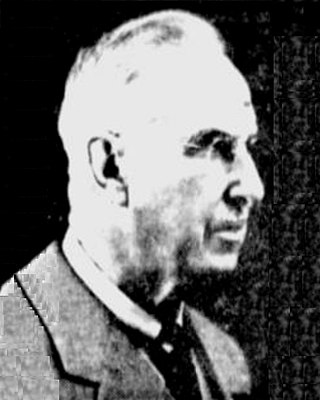
The American Civil Liberties Union (ACLU) is an American nonprofit human rights organization founded in 1920. The organization strives "to defend and preserve the individual rights and liberties guaranteed to every person in this country by the Constitution and laws of the United States." The ACLU works through litigation and lobbying and has more than 1,800,000 members as of July 2018, with an annual budget over $300 million. ACLU affiliates are active in all 50 states, Washington, D.C., and Puerto Rico. The ACLU provides legal assistance in cases where it considers civil liberties at risk. Legal support from the ACLU can take the form of direct legal representation or preparation of amicus curiae briefs expressing legal arguments when another law firm is already providing representation.
Miller v. California, 413 U.S. 15 (1973), was a landmark decision of the U.S. Supreme Court clarifying the legal definition of obscenity as material that lacks "serious literary, artistic, political, or scientific value". The ruling was the origin of the three-part judicial test for determining obscene media content that can be banned by government authorities, which is now known as the Miller test.
Reno v. American Civil Liberties Union, 521 U.S. 844 (1997), was a landmark decision of the Supreme Court of the United States, unanimously ruling that anti-indecency provisions of the 1996 Communications Decency Act violated the First Amendment's guarantee of freedom of speech. This was the first major Supreme Court ruling on the regulation of materials distributed via the Internet.

The Child Online Protection Act (COPA) was a law in the United States of America, passed in 1998 with the declared purpose of restricting access by minors to any material defined as harmful to such minors on the Internet. The law, however, never took effect, as three separate rounds of litigation led to a permanent injunction against the law in 2009.

Norman Dorsen was the Frederick I. and Grace A. Stokes Professor of Law and Co-Director of the Arthur Garfield Hays Civil Liberties Program at the New York University School of Law, where he specialized in Constitutional Law, Civil Liberties, and Comparative Constitutional Law. Previously, he was president of the American Civil Liberties Union, 1976–1991. He was also president of the Society of American Law Teachers, 1972–1973, and president of the U.S. Association of Constitutional Law in 2000.
Ashcroft v. American Civil Liberties Union, 535 U.S. 564 (2002), followed by 542 U.S. 656 (2004), was a decision of the United States Supreme Court, ruling that the Child Online Protection Act (COPA) was unconstitutional as a violation of the First Amendment's guarantee of freedom of speech.

Morris Leopold Ernst was an American lawyer and prominent attorney for the American Civil Liberties Union (ACLU). In public life, he defended and asserted the rights of Americans to privacy and freedom from censorship, playing a significant role in challenging and overcoming the banning of certain works of literature and in asserting the right of media employees to organize labor unions. He also promoted an anti-communist stance within the ACLU itself, and was a member of the President's Committee on Civil Rights.

Morton Aaron Brody was a United States district judge of the United States District Court for the District of Maine from 1991 to 2000.

David D. Cole is the National Legal Director of the American Civil Liberties Union (ACLU). Before joining the ACLU in July 2016, Cole was the Hon. George J. Mitchell Professor in Law and Public Policy at the Georgetown University Law Center from March 2014 through December 2016. He has published in various legal fields including constitutional law, national security, criminal justice, civil rights, and law and literature. Cole has litigated several significant First Amendment cases in the Supreme Court of the United States, as well a number of influential cases concerning civil rights and national security. He is also a legal correspondent to several mainstream media outlets and publications.
Robert William Clifford is an American politician, lawyer and retired associate justice of the Maine Supreme Judicial Court. He was appointed to this position on August 1, 1986 by then-governor Joseph Brennan. He was reappointed to seven-year terms in 1993, 2000, and 2007. He retired in 2009.
United States v. American Library Association, 539 U.S. 194 (2003), was a decision in which the United States Supreme Court ruled that the United States Congress has the authority to require public schools and libraries receiving E-Rate discounts to install web filtering software as a condition of receiving federal funding. In a plurality opinion, the Supreme Court ruled that public school and library usage of Internet filtering software does not violate their patrons' First Amendment free speech rights and that the Children's Internet Protection Act is not unconstitutional.

Jeffrey N. Roy is a State Representative in the Commonwealth of Massachusetts, Massachusetts General Court. Roy represents the 10th Norfolk District, which includes the Town of Franklin, Massachusetts in its entirety, and Precincts 2, 3, and 4 of the Town of Medway, Massachusetts. Roy was elected on the 6th of November, 2012.
Joseph M. Jabar is an American lawyer who served as an associate justice of the Maine Supreme Judicial Court from 2009 to 2024. He was appointed to the bench in 2009, after serving as a judge on the Superior Court. He was not reappointed to serve on the court and resigned on January 31, 2024.
The Lewiston–Auburn shoe strike of 1937 occurred in the cities of Lewiston, Maine and Auburn, Maine among textile workers, most of whom were of French-Canadian descent. The workers walked off the job on March 25, 1937 demanding higher pay, a shorter workweek, better working conditions and union representation. Shortly after the strike began, the manufacturers offered a 10% wage increase, which was refused by the Strikers. By early April, 4,000 to 5,000 workers, including skilled and unskilled, were on strike. On April 21, workers and union organizers attempted to march across South Bridge, which connect Lewiston's Little Canada neighborhood and Auburn. Police and workers fought, including many women on the workers' side. Depicted in the Lewiston Evening Journal as 'Red Wednesday', Governor Lewis Barrows called in the Maine Army National Guard. Overall, the strike ended with a loss for the workers on June 29, 1937.

The Brooks Quimby Debate Council (BQDC) is a debate society in Lewiston, Maine, primarily comprising students from Bates College. The society, known for participating in British and American Parliamentary debate styles, competes in the American Parliamentary Debate Association and the World Universities Debating Championship. Notably, it engaged in a debate with Oxford University in 1923, marking Oxford's first debate in the United States.
David Carliner was an immigration, civil liberties, and civil rights lawyer in Washington, D.C. Among the earliest practitioners of American immigration and naturalization law, he was an early combatant of anti-miscegenation laws, challenged the segregation of public accommodations, and fought for the rights of sexual minorities to enter the country and have full employment rights in the federal government. Carliner was chair of the District of Columbia Home Rule Committee and was responsible for the first modern home rule reforms in 1967. He served as the general counsel of the American Civil Liberties Union (1976–1979); helped to found the ACLU's National Capital Area chapter and Global Rights ; and served on the boards of the ACLU (1965–1983), the American Jewish Committee (1969–1971), and a variety of other organizations. He was the author of the ACLU's 1977 handbook on immigrants' rights and a coauthor of its 1990 revision.
Kingsley Books, Inc. v. Brown, 354 U.S. 436 (1957), was a Supreme Court case that addressed issues of obscenity, free speech, and due process. The case stemmed from the confiscation and destruction of books from a New York City bookstore. The court's determination was that:
A state injunction against distribution of material designated as "obscene" does not violate freedom of speech and press protected by the First Amendment and the Due Process Clause of the Fourteenth Amendment.

Henry Washington Sawyer III was an American lawyer, civil rights activist and politician. Born in Philadelphia, he served in the U.S. Navy in World War II, afterwards returning to the University of Pennsylvania Law School. Sawyer worked as a corporate lawyer but is best known for his advocacy of civil liberties, especially in First Amendment cases. In Abington School District v. Schempp and Lemon v. Kurtzman, he successfully argued cases on behalf of the American Civil Liberties Union before the Supreme Court of the United States that became the basis for all modern Establishment Clause jurisprudence. Sawyer also pursued civil rights causes in Philadelphia and in the South during the civil rights movement of the 1960s. Originally a Republican, he was elected as a Democrat to serve a four-year term on the Philadelphia City Council, where he worked for civil service reform and to increase the amount of public art in the city.

Albert Beliveau of Rumford, Maine was a justice of the Maine Supreme Judicial Court from March 3, 1954, to March 25, 1958. He was a Roman Catholic, and his son was Severin Beliveau.

Louis Bartlett Costello was an American newspaper publisher and banker who served as general manager and then president of The Lewiston Daily Sun and Lewiston Evening Journal in Lewiston, Maine. He began his career in journalism while still a student at Bates College and, by the end of his life, was a leading press figure in the state.










